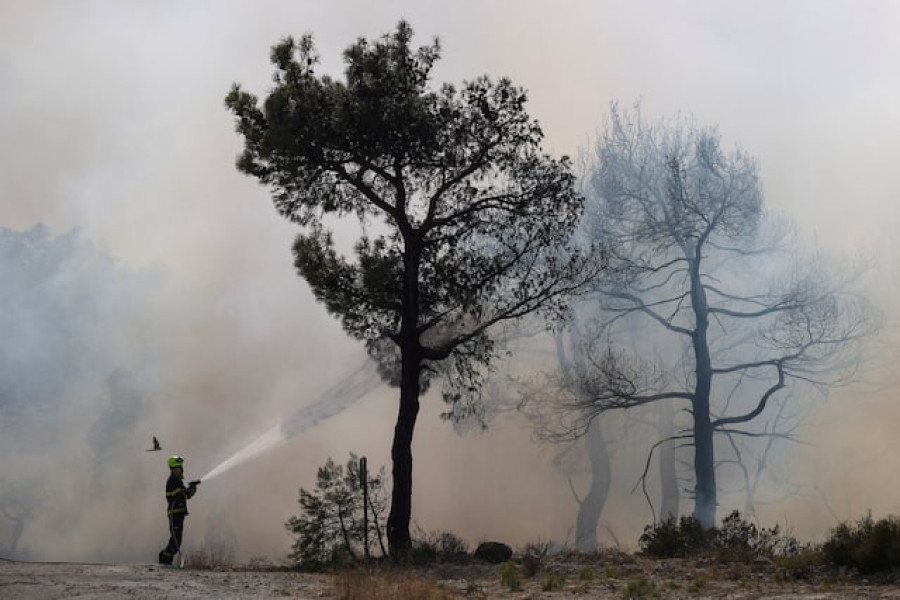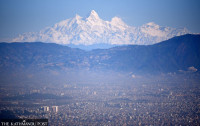Climate & Environment
Summer 2023 was the hottest in 2,000 years, study says
The stark finding comes from one of two new studies released on Tuesday, as both global temperatures and climate-warming emissions continue to climb.
Reuters
The intense northern hemisphere summer heat that drove wildfires across the Mediterranean, buckled roads in Texas and strained power grids in China last year made it not just the warmest summer on record - but the warmest in some 2,000 years, new research suggests.
The stark finding comes from one of two new studies released on Tuesday, as both global temperatures and climate-warming emissions continue to climb.
Scientists had quickly declared last year’s June to August period as the warmest since record-keeping began in the 1940s.
New work published in the journal Nature suggests the 2023 heat eclipsed temperatures over a far longer timeline - a finding established by looking at meteorological records dating to the mid-1800s and temperature data based on the analysis of tree rings across nine northern sites.
“When you look at the long sweep of history, you can see just how dramatic recent global warming is,” said study co-author Jan Esper, a climate scientist at Johannes Gutenberg University in Germany.
Last year’s summer season temperatures on lands between 30 and 90 degrees north latitude reached 2.07 degrees Celsius (3.73 degrees Fahrenheit) higher than pre-industrial averages, the study said.
Based on tree ring data, the summer months in 2023 were on average 2.2 C (4 F) warmer than the estimated average temperature across the years 1 to 1890.
The finding was not entirely a surprise. By January, scientists with the European Union’s Copernicus Climate Change Service were saying the year of 2023 was “very likely” to have been the warmest in some 100,000 years.
However, proving such a long record is unlikely, Esper said. He and two other European scientists argued in a paper last year that year-by-year comparisons could not be established over such a vast time scale with current scientific methods, including gleaning temperature data from sources such as marine sediments or peat bogs.
“We don’t have such data,” Esper said. “That was an overstatement.”
Last year’s intense summer heat was amplified by the El Nino climate pattern, which typically coincides with warmer global temperatures, leading to “longer and more severe heatwaves, and extended periods of drought,” Esper said.
Heatwaves are already taking a toll on people’s health, with more than 150,000 deaths in 43 countries linked to heatwaves for each year between 1990 and 2019, according to the details of a second study published on Tuesday in the journal PLOS Medicine.
That would account for about 1% of global deaths - roughly the same toll taken by the global Covid-19 pandemic.
More than half of those heatwave-related excess deaths occurred in populous Asia.
When the data are adjusted for population size, Europe had the highest per capita toll with an average of 655 heat-related deaths each year per 10 million residents. Within the region, Greece, Malta, and Italy registered the highest excess deaths.
Extreme heat can trigger heart problems and breathing difficulty or cause heat stroke.




 9.7°C Kathmandu
9.7°C Kathmandu









